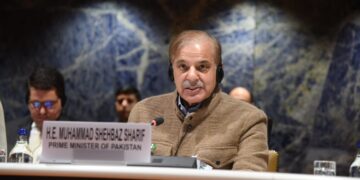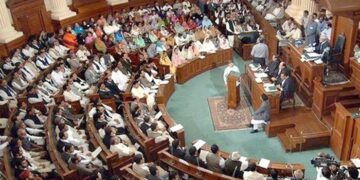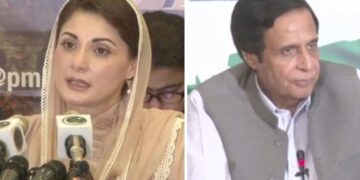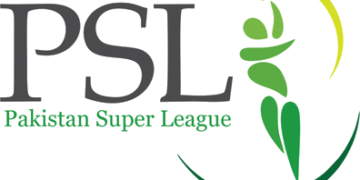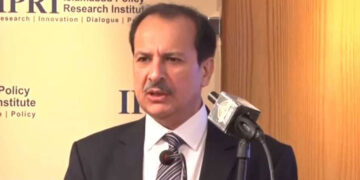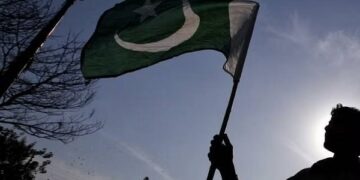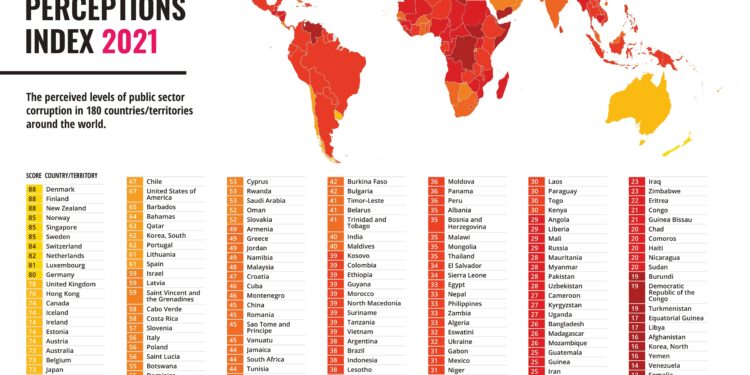According to Transparency International, Pakistan declined 16 places in the Corruption Perceptions Index (CPI) for 2021 relative to the earlier year, ranking 140 out of 180 nations.
The CPI employs a scale of zero to 100 to determine how corrupt a country’s public sector is considered by experts and businesses, with zero indicating highly corrupt and 100 indicating very clean.
The CPI for 2021 used 13 expert assessments and surveys of business leaders to rank 180 nations and territories based on their perceived levels of public sector corruption.
Pakistan’s CPI was 31 in 2020, placing it 124th out of 180 countries. According to Transparency International, the country’s corruption score has risen to 28, placing it 140th out of 180 countries on the index.
India, on the other hand, received a score of 40 for corruption, while Bangladesh received a score of 26. Both countries came in at 85th and 147th place, respectively.
While global corruption levels remain stagnant, with 86% of nations making little or no progress in the last decade, Transparency International’s Index found that Pakistan’s CPI score is significantly low due to the absence of “rule of law” and “state capture.”
While commenting on the study, Justice (retd) Nasira Iqbal, Vice Chair of Transparency International Pakistan, remarked that India and Bangladesh’s CPI 2021 scores had not changed from the previous year.
Pakistan’s ranking has steadily declined during the PTI leadership. It fell to 120th place out of 180 countries in 2019, 124th place in 2020, and 140th place in 2021. During the PML-N government, the country was ranked 117th out of 180 countries in 2018.
Transparency International discovered in their analysis that nations that violate civil liberties routinely score lower on the CPI. Complacency in the face of corruption exacerbates human rights violations and undermines democracy, creating a vicious cycle. Authoritarianism replaces these rights and freedoms as democracy erodes, contributing to even higher levels of corruption.
The top-performing countries, according to Transparency International, were Denmark, Finland, and New Zealand, which all scored 88 on the corruption perceptions scale, followed by Norway, Singapore, and Sweden, who all scored 85.
South Sudan, on the other hand, had the lowest corruption perceptions score of 11, followed by Syria (13), Somalia (13), Venezuela (14) and Afghanistan (16).
Transparency International identified a trend of “weakening of anti-corruption institutions or, in certain cases, the absence of an agency to coordinate action against corruption” in nations with low ratings — China, India, Indonesia, Bangladesh, and Pakistan — in its report.
The situation in India was described as “especially concerning” in the study, with worries raised about the country’s democratic status as fundamental freedoms and institutional checks and balances deteriorate. Journalists and activists in the country are particularly vulnerable, according to the report, who have been targeted by the police, political militants, criminal gangs, and corrupt local officials.
“Security, defamation, sedition, hate speech, and contempt-of-court accusations have been levelled against civil society organisations that speak out against the government,” according to the report.
It went on to say that countries such as Singapore, Bangladesh, and Pakistan have boosted digital surveillance in order to suppress people who were seeking to hold governments accountable during the pandemic.
“Human rights are not simply a nice-to-have in the battle against corruption,” stated Delia Ferreira Rubio, chair of Transparency International, in response to the findings. Authoritarian approaches eliminate independent checks and balances, leaving anti-corruption initiatives to the whims of a small group of people.
“The only long-term path to a corruption-free society is for people to be able to speak freely and act together to hold power accountable.”
‘A charge sheet has been filed against the government.’
Meanwhile, PML-N President Shehbaz Sharif responded to the study by saying that corruption has “decreased” during the PML-administration N’s as a consequence of “transparency, good governance, and legal reforms.”
“Now, despite the fact that no worthwhile development has occurred,” he tweeted, “corruption has reached an all-time high.”
Sherry Rehman, a vice president of the PPP, called the report a “charge sheet against the [PTI] government,” claiming that the rankings had “exposed the government’s narrative.”
In a separate tweet, she said that the government that professed to be anti-corruption has surpassed 16 countries in terms of graft. Rehman cited the resignation of Mirza Shahzad Akbar, the prime minister’s accountability adviser, as “evidence” that corruption had increased rather than decreased.
Accountability is solely used to hold opponents accountable. She went on to say that international institutions are now disclosing the government’s wrongdoing.
